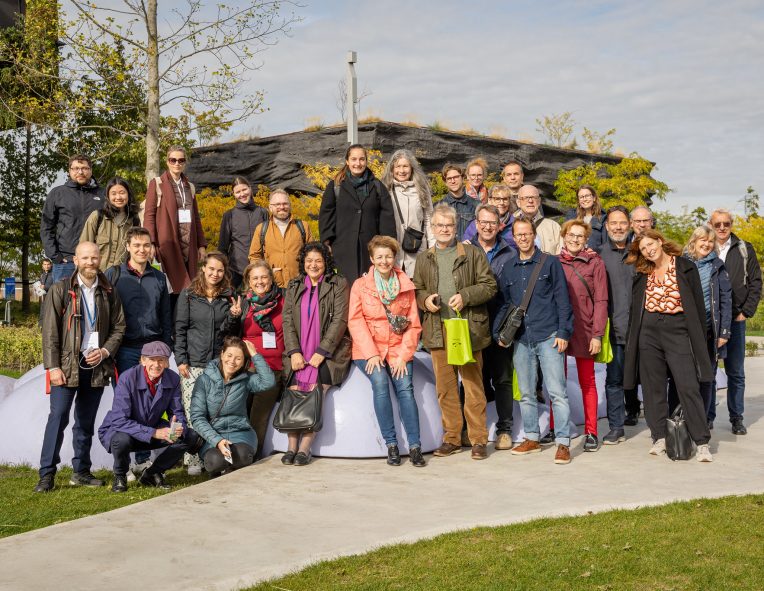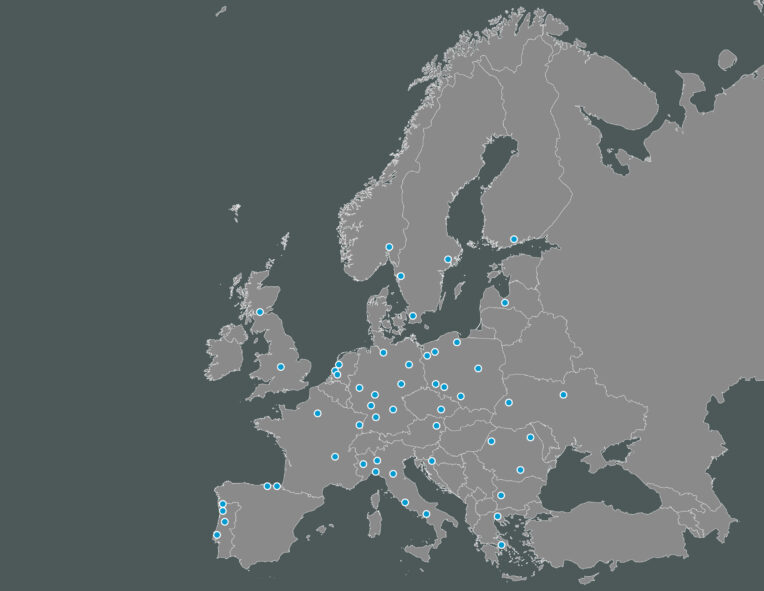METREX-supported ESPON project results explore to what extent the Strategic Urban Region of the Eurodelta (SURE) is moving towards greener mobility.
Research carried out for ESPON– on which METREX was an Observer –has identified four effective cross-border policy measures and a clear approach on how the mobility of both people and goods in the Eurodelta region could be made cleaner and faster. Policy makers from the 10 governmental stakeholders in the region are joining forces in 2022, to begin implementing the report’s recommendations in continued efforts to meet Europe’s sustainability targets.
From plane to the train
The first policy measure that researchers recommend is a shift from air to high-speed train travel for over distances of less than 500 kilometres within the Eurodelta area. This would result in realising 2.5% of the European Union CO2 reduction target. This proposal now needs to be discussed with the European Commission, in order to bring about the necessary changes to the open skies agreements. An ambassador, with the appropriate support team should coordinate activities to achieve this modality shift.
More zero-emission zones
The second policy measure covers better alignment of emission standards and which vehicles are allowed in cities with more than 100,000 inhabitants in the Eurodelta. This measure represents a potential 20% reduction in CO2, NOx and PM10 in the region. An appropriate forum for policy dialogue should be set up to assess political feasibility, options for harmonisation and their impact.
Mobility as a Service
The third policy measure is about increasing the provision of Mobility as a Service (MaaS) in the Eurodelta. MaaS enables travellers to plan, book and pay for all transport options in one app. The research shows that shared mobility, in combination with a metro system, can lead to a 40% CO2 reduction. A first step for policy makers is to set up an organisation to coordinate the unlocking and governance of MaaS-relevant.
From road to rail
The fourth policy measure concerns a shift from road to rail for cross-border passenger transport. The challenge here is optimising cross-border cooperation, as rail transport and infrastructure are currently organised by national or regional bodies, and controlled by national authorities. First step is for regional and local stakeholders to learn from existing successful projects.
Working together on sustainable accessibility
The Netherlands, North Rhine-Westphalia, Flanders, Brussels and Northwest France together form the metropolis called Eurodelta. Within the region, it is possible to reach almost 50 million people within 3 ½ hours. Making Eurodelta a global hub for goods, services and knowledge. While individuals and businesses are able to earn well here, the area is at risk of losing its attractiveness as a place to live and work. Roads are congested and, in some areas, the air is so polluted that construction projects need to be paused. Clean and fast connections between urban areas could, however, become a major strength of the Eurodelta.
Ten stakeholders
The ESPON research was initiated by 10 stakeholders from across the Eurodelta:
- Province of Zuid-Holland (NL) – Lead Partner
- The city of The Hague (NL)
- The Flanders Region (BE)
- Ghent Canal Zone project (BE)
- The Metropolregion Rheinland (DE)
- The Province of Gelderland (NL)
- The Métropole Européenne de Lille (FR)
- The city of Amsterdam (NL)
- The Brussels-Capital Region (BE)
- The Regionalverband Ruhr (DE)
They were joined by two observing organisations:
- The International Society of City and Regional Planners (ISOCARP)
- The network of European Metropolitan Regions and Areas (METREX)
For more information
The research results and recommendations can be found at: www.espon.eu/sustainable-transport. Watch the summary video.
Contact Stephen Gallagher on stephen.gallagher@eurometrex.org.



